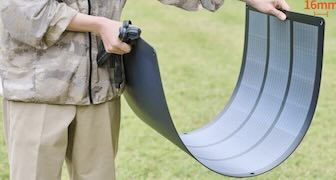Nov 16 (NHK) - Japan's Environment Ministry says levels of tritium in seawater off the crippled Fukushima Daiichi nuclear plant remain below detectable amounts.
The ministry on Wednesday released the results of its 11th weekly survey of water samples. It has been carrying out the surveys since Tokyo Electric Power Company first began releasing treated and diluted water from the plant into the ocean on August 24.
In the latest survey, the ministry took samples from 11 points off Fukushima, Miyagi and Ibaraki prefectures on November 9 and 11. The locations include one near the water discharge outlet, and another about 70 kilometers away from the plant.
The ministry said studies found the concentration of tritium was below the minimum detectable level of 10 becquerels per liter at all collection points.
In the previous 10 surveys, the concentration of tritium was also below that level. The results of the first survey were released on August 27.
The ministry also announced more detailed analyses of the samples collected between September 5 and 15 from 26 points off Fukushima and other areas. It said the concentration of tritium was between 0.052 and 0.32 becquerels per liter.
Officials said they confirmed that the discharge has had no harmful impacts on human beings or the environment.
The Fukushima Daiichi plant suffered a triple meltdown in the 2011 earthquake and tsunami.
Water used to cool molten fuel there has been mixing with rain and groundwater. The accumulated water is being treated to remove most radioactive substances, but still contains tritium.
Before releasing the treated water into the sea, the plant's operator dilutes it to reduce tritium levels to about one-seventh of the World Health Organization's guideline for drinking water.















